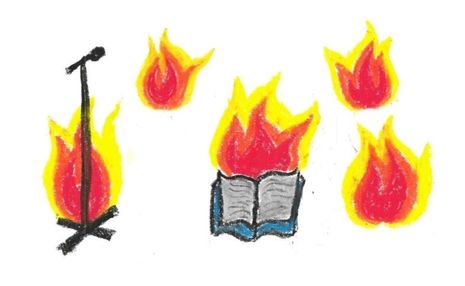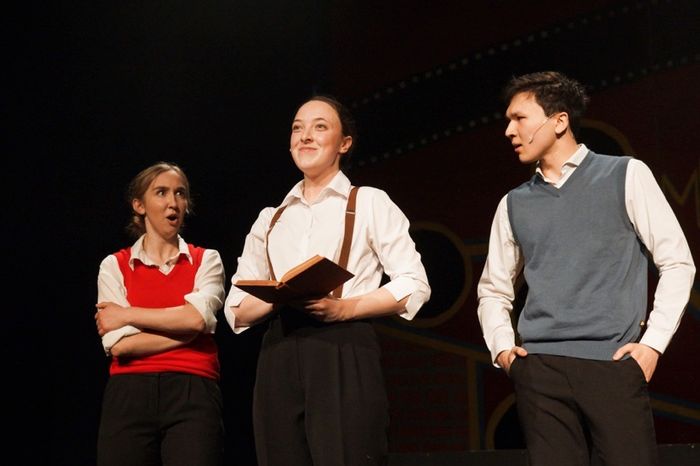Cambridge Theatre: Hot or not?
Rant and rave with the Varsity writers delivering their searing hot takes on the student theatre scene

There is too much going on in Cambridge theatre.
What’s that piece of advice that every graduating student tries desperately to pass on? Ah yes – don’t stretch yourself too thinly. I’m not one to quash the creation of art, but when there’s four ADC shows, four Corpus shows, two Pembroke shows, two Downing shows, two Robinson shows and a Queens’ show in the space of two weeks, I think it just might be overkill. Cambridge theatre has always struggled to fill production team roles at times, but now that some shows are struggling to even fill acting roles, we may have pushed it too far. Quality, not quantity!
Gina Stock
It’s past time to get rid of star ratings for theatre reviews.
They’re effectively a useless gauge of a show – each reviewer has their own individual metric by which they decide, and the variety of reviewers is so wide that there will never be a workable standardised rating system. Stars ultimately come down to personal taste, just like the review itself. They obscure the reader’s perceptions: they’ll see the rating and not much else. Who cares if there are 700 words about the show, toiled over by the editor and writer? One manifestation of an opinion is not the gospel, people! If the potential audience relies on stars alone to tell them what to watch, let us all change the prevailing culture by engaging with criticism more rigorously. Producers: choose your highlighted quotes strategically! Readers: use the writing to gauge whether you ought to see a show! Writers: let go of trying to squash your opinion into a meaningless metric. Out with the stars, in with attentive, careful, and insightful theatrical criticism!
Theo Chen
Why are they always SINGING?
Listen, I love theatre. I love it so much, I work at the ADC Theatre. It’s important to have a space for am-dram, and for students to try things out. I love everything about it. Everything, apart from one infuriating theatre kid trait, which I’m sure to encounter every single time I step foot into work. The constant, unending, tuneless butchering of show tunes. Theatre kids love to sing. And it drives me nuts. Within the confines of a rehearsal for a musical? Sure. At the CUADC bar night? Sing away. Karaoke? Go nuts. But out of nowhere, apropos of nothing, just bursting into “You’ll Be Back” from Hamilton? Kill me now. And crucially, not every theatre kid is a good singer. There, I’ve said it. I would love, and I cannot stress this enough, to have a shift at work where my ears weren’t randomly assaulted by the entire soundtrack of Dear Evan Hansen: “You will be found”? Do me a favour, you have been found, and I’ve “found” that you are an awful singer. Save it for the shower, thesps, because my ears are bleeding.
Lotte Brundle
Thesps, please stop performing plays from the tragedy paper.
Sure, the tragedy paper has been a staple of the English tripos for over a century – but that doesn’t mean your entire repertoire now has to be composed of Ibsen and the Ancient Greeks. I love Hedda Gabler and Medea as much as much as the next engling, but are these the kind of shows I want to watch six weeks into Lent Term, where I’m only just recovering from the onslaught of Euripides and Shakespeare from Michaelmas Term? Every time I see a poster for a new staging or revival of a text that was definitely on the reading list, I’m taken back to those crammed lecture halls, sheltering a flock of us from the November drizzle. This is not to say there isn’t merit in performing these plays (and props to those engling thesps who manage to compartmentalise performing tragedy), but there’s so much more out there which combines excellent writing with a more original outlook.
Famke Veenstra-Ashmore
Let’s bring the “amateur” back into amateur dramatics.
Coming to Cambridge with zero knowledge of the theatre scene, I was confounded by the standard of professionalism and the relentless output of productions, seemingly run with more discipline than a Navy missile carrier. I worry the thesp experience is strangled by the apparently self-inflicted imperative to be a Tony-touting professional, at the expense of throwing yourself in a variety of roles and projects with no intention of accolade or recognition. Cambridge is an infamously busy place, and the itch for competition leaks out from academics and permeates our artistic endeavours. So here’s to the true amateurs. The freshers slipping up on opening night but concluding the run with unpolished flair and new-found confidence. The techies tripping around backstage, accidentally turning a disco ball on mid-soliloquy, stumbling and fumbling commendably towards a new skill. The original writers and stand-up comedians, bravely extending their offerings to a crowd of their peers. To quote the humble genius of Ratatouille: “The time when a critic truly risks something... is in the discovery and defence of the new”. This novelty and daring, even if it doesn’t quite come together, should be at the heart of our theatre community.
Alex Parnham-Cope
 News / Cambridge welcomes UK rejoining the Erasmus scheme20 December 2025
News / Cambridge welcomes UK rejoining the Erasmus scheme20 December 2025 News / CUP announces funding scheme for under-represented academics19 December 2025
News / CUP announces funding scheme for under-represented academics19 December 2025 News / News in Brief: humanoid chatbots, holiday specials, and harmonious scholarships21 December 2025
News / News in Brief: humanoid chatbots, holiday specials, and harmonious scholarships21 December 2025 News / SU reluctantly registers controversial women’s soc18 December 2025
News / SU reluctantly registers controversial women’s soc18 December 2025 News / King appoints Peterhouse chaplain to Westminster Abbey22 December 2025
News / King appoints Peterhouse chaplain to Westminster Abbey22 December 2025










